Alberta
Alberta Justice Minister says Feds planning to use RCMP to confiscate firearms starting in PEI
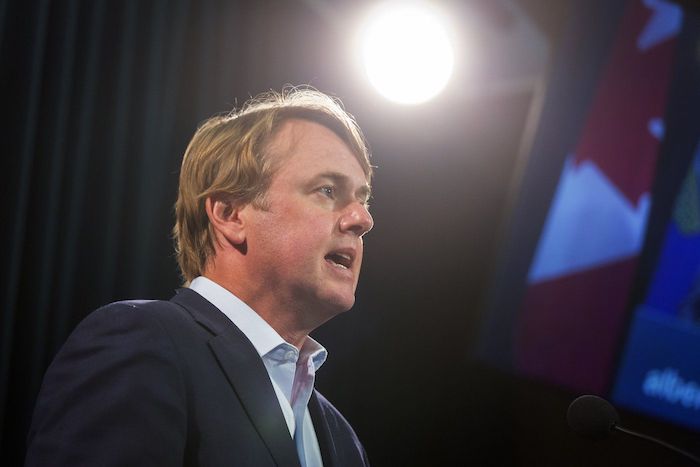
Federal confiscation program: Minister Shandro
Minister of Justice Tyler Shandro issued the following statement on the federal firearms confiscation program:
“Last week, Minister Mendicino admitted that the federal government has still not figured out how to implement their firearms confiscation program.
“This admission comes shortly after the Canadian Association of Chiefs of Police called on the federal government to not to use police services to confiscate firearms.
“Now, media reports have drawn attention to a federal government memo that outlines Minister Mendicino’s plans to confiscate firearms across Canada.
“The memo admits that efforts to find private sector companies to implement the federal firearms confiscation program failed this summer.
“With no private sector companies willing to participate, the memo outlines how the RCMP will first be deployed to Prince Edward Island (PEI), which has been deemed to be an easy ‘low-risk’ target.
“The federal government is treating PEI as a ‘pilot’ that will help them learn on the job as they implement their confiscation plan through trial and error.
“This ‘program’ is expected to cost a billion dollars or more and has supposedly been in the works for three years.
“Despite a mountain of money and years worth of lead time, Ottawa appears to be lost – especially given their latest attack on hunting rifles and shotguns – at minimum, they should proactively extend the amnesty that is currently scheduled to end in October 2023.
“Such a decision, however, would involve showing Canadian firearms owners a measure of decency, something that Minister Mendicino and this federal government is seemingly incapable of.”
—–
Public Safety Canada’s Buyback Program
Overview
The Government of Canada committed to implementing a mandatory buyback program so that the assault-style firearms that became prohibited on May 1, 2020 are safely removed from our communities. Public Services and Procurement Canada’s role is to provide procurement services to Public Safety Canada (PS) to support their implementation of the buyback program.
Mandate
As of May 1, 2020, the Government of Canada has prohibited over 1,500 models of assault-style firearms (ASFs) and certain components of some newly-prohibited firearms. New maximum thresholds for muzzle energy and bore diameter are also in place. Any firearm that exceeds these is now prohibited. A Criminal Code amnesty period is currently in effect to October 30, 2023. The amnesty is designed to protect individuals or businesses who, at the time the prohibition came into force, were in lawful possession of a newly prohibited firearm from criminal liability while they take steps to comply with the law.
The primary intent of the buyback program would be to safely buyback these now prohibited firearms from society, while offering fair compensation to businesses and lawful owners impacted by the prohibition. PSPC is currently examining options for implementation of the buyback program, including the potential of contracting out specific activities.
Key activities
The program approach currently being considered by PS senior management envisages 2 phases, with a pilot in the first phase that would inform the national roll-out of the program:
- phase 1: commence in December 2022 and conclude at the end of the amnesty period. Primarily led by Royal Canadian Mounted Police (RCMP) with support from PS and other government departments. Prince Edward Island (PE) will be used as a pilot and will be the first point of collection based on the smaller number of firearms. As a result, lessons learned, gaps analysis and risk assessment would inform the phase 2 national roll-out
- phase 2: national roll-out is planned for spring 2023 once an information management/information technology (IM/IT) case management system is in place. It will be implemented in collaboration with other government departments, provincial, municipal and territorial governments and potential Industry partners
Public Services and Procurement posted a request for information on July 14, 2022 seeking feedback from industry on potential capacities to support delivery of the buyback program. It closed on August 31, 2022 and with very limited interest from the industry.
Partners and stakeholders
The program owner is Public Safety Canada. They are responsible for the buyback planning and oversight.
Public Services and Procurement Canada has been supporting PS with the buyback program since August 2021 supporting the development of procurement strategies for the delivery of the various potential requirements such as:
- collection and transportation
- professional services
- tracking
- storage solutions
- package inspection
- destruction
- post-destruction recycling
Shared Services Canada will assist with procurement of information technology (IT) solutions and other required IT support, based on its mandate.
The RCMP will start collection of ASFs in December 2022. They are also supporting the buyback program by providing a high level process map or written description of the programmatic phases.
Employment and Social Development Canada may support the buyback program with call-centres and payment solutions for the compensation.
Provincial, municipal and territorial governments are also being engaged to support the implementation and program delivery.
Key considerations
The prohibition applies to all current and future firearm variants that meet the criteria—now, over 1,800 firearms. These firearms can no longer be legally used, sold, or imported.
Currently owners have the option to dispose of their firearm by surrendering it to police, deactivating through an approved business or exporting the firearm with a valid export permit, all without government compensation. The buyback program aims to offer fair compensation to affected owners and businesses.
Work at the officials level is ongoing to develop, design and engage on the program. This includes public consultations on the government’s price list, which was posted on July 28, 2022 on Public Safety’s website and would be used to establish compensation levels for affected firearms.
Alberta
Danielle Smith warns arsonists who start wildfires in Alberta that they will be held accountable

From LifeSiteNews
The Alberta government has created an ad campaign highlighting the fact that most fires are caused by humans and not ‘climate change,’ as many left-leaning politicians claim.
In preparation for the so-called wildfire “season,” Alberta Premier Danielle Smith sternly warned anyone caught starting blazes in her province, including arsonists, that they will face charges and be held fully “liable” for all costs associated with the fires.
“As we approach the wildfire season, it is important to understand that 67% of wildfires in Alberta are started by people,” Smith posted Monday on X.
“If you start a wildfire, you can be charged, fined, and held liable for all costs associated with fighting the wildfire.”
Smith made the comments after last year revealing that most of the wildfires in her province (500 of the 650) were caused by humans and not “climate change,” as has been pushed by the legacy media and opposition politicians.
“All I know is in my province we have 650 fires and 500 of them were human caused,” she said, “so we have to make sure that when people know that when it’s dry out there and we get into forest fire season that they’re being a lot more careful because anytime you end up with an ignition that happens it can have devastating consequences.”
To go along with Smith’s Monday message, the Alberta government has also created an ad campaign highlighting the fact that most fires are caused by humans and not “climate change,” as many left-leaning politicians claim.
As reported by LifeSiteNews last year, Smith ordered arson investigators to look into why some of the wildfires that raged across the vast expanse of the province had “no known cause” shortly after they spread.
During the campaign of Alberta’s 2023 election, Smith, whose United Conservative Party won a majority government, had to pause to deal with many wildfires that suddenly, out of nowhere, ravaged the province. The fires came on suddenly and uncharacteristically considering the heavy snowfall in the province in early March and rain in April.
LifeSiteNews reported that despite the arrest of multiple arsonists, Canada’s mainstream media and the federal government have been pushing a narrative attributing the recent wildfires to “climate change.”
Indeed, in January, LifeSiteNews reported that a man from Quebec admitted to starting 14 forest fires himself. This put a chill to the legacy media’s push that the fires in the province were caused by “climate change.”
However, statistics from Canada’s National Fire Database show that wildfires have gone down in recent years and peaked in 1989.
As for Canadian Prime Minister Justin Trudeau, he has repeatedly used “climate change” and forest fires as a catalyst for propping up his government’s much-maligned carbon tax, which Smith opposes. He has blamed the fires on “climate change.”
A June 2017 peer-reviewed study by two scientists and a veteran statistician confirmed that most of the recent global warming data have been “fabricated by climate scientists to make it look more frightening.”
Trudeau has been calling for increased bans on Canada’s natural resources, of which Alberta has in abundance.
Smith has vowed to fight Trudeau on his attacks against Alberta’s oil and gas industry.
The reduction and eventual elimination of so-called “fossil fuels” and a transition to unreliable “green” energy has also been pushed by the World Economic Forum (WEF), the globalist group behind the socialist “Great Reset” agenda in which Trudeau and some of his cabinet are involved.
Alberta
Free Alberta Strategy backing Smith’s Provincial Priorities Act
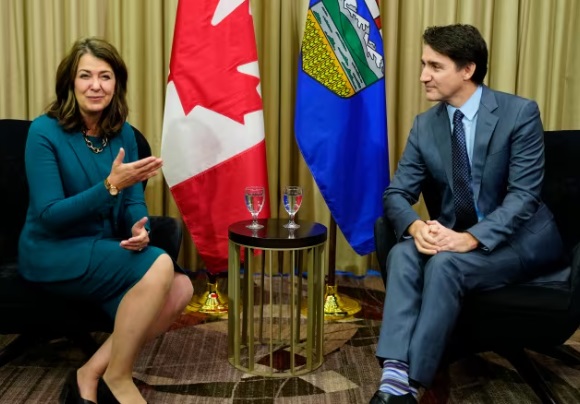
News release from Free Alberta Strategy
Premier Danielle Smith had a message for Ottawa last week.
Keep out.
On Wednesday, the Premier rolled out her latest weapon in the fight against federal intrusions into provincial jurisdiction.
If passed, Bill 18 – the Provincial Priorities Act – aims to align federal funding with provincial priorities, ensuring that said funding reflects Alberta’s interests.
The legislation stipulates that any agreements between the federal government and any provincial entities – including municipalities – must receive provincial approval to be considered valid.
Smith has already given it a nickname: “the stay-out-of-my-backyard bill.”
It’s an apt description of the legislation, especially considering that’s what the federal government has been doing for years – encroaching into Alberta’s jurisdiction.
The legislation shouldn’t come as a surprise to anyone.
We all know that most deals the Alberta government enters into with the federal government don’t work out for Albertans.
We end up paying more in federal taxes than gets spent in federal spending on the programs.
The programs come laden with restrictive conditions that undermine our autonomy, and are often detrimental to our ability to provide the services.
This is especially true with regard to the recent agreement between Ottawa and the provinces that allows the federal government to nationalize childcare.
The childcare agreement has come under heavy criticism due to funding shortfalls in the deal.
It also applies to housing, where despite Alberta accounting for 12% of the national population and experiencing the most rapid population growth, it received a mere 2.5% of the total $1.5 billion in federal housing funding last summer.
Jason Nixon, Minister of Seniors, Community and Social Services, is in charge of housing in Alberta – which is provincial jurisdiction.
On the latest rollout of conditional federal housing handouts, Nixon isn’t buying.
“We will not be bribed, with our own money, to increase the time it takes to get homes built with green energy that makes homes more expensive.”
The theory also applies to the federal government’s latest gambit – doing an end-around provincial negotiations and going directly to municipalities, who seem more interested in taking the money than the conditions attached.
Municipalities are provincial jurisdiction.
Bill 18 mandates that entities within Alberta’s jurisdiction, such as municipalities, universities, school boards, housing agencies, and health authorities, must seek the province’s approval before engaging in, modifying, extending, or renewing agreements with Ottawa.
Agreements between the federal government and provincial entities lacking Alberta’s endorsement will be deemed illegal under this legislation.
That’s Premier Smith’s message.
She’s had enough of it.
“It is not unreasonable for Alberta to demand fairness from Ottawa. They have shown time and again that they will put ideology before practicality, which hurts Alberta families and our economy. We are not going to apologize for continuing to stand up for Albertans so we get the best deal possible.
“Since Ottawa refuses to acknowledge the negative impacts of its overreach, even after losing battles at the Federal and Supreme Courts, we are putting in additional measures to protect our provincial jurisdiction to ensure our province receives our fair share of federal tax dollars and that those dollars are spent on the priorities of Albertans.”
Municipal Affairs Minister Ric McIver had additional thoughts:
“For years, the federal government has been imposing its agenda on Alberta taxpayers through direct funding agreements with cities and other provincial organizations. Not only does Alberta not receive its per capita share of federal taxpayer dollars, the money we do receive is often directed towards initiatives that don’t align with Albertan’s priorities.
“Albertans from all corners of the province expect our federal share of taxes for roads, infrastructure, housing and other priorities – not federal government political pet projects and programs in select communities.”
The Provincial Priorities Act is based on existing provincial legislation in Quebec – called “An Act Respecting the Ministère du Conseil executif” – which prohibits any municipal body from entering into or negotiating an agreement with the federal government or its agencies without express authorization from the Quebec government.
That’s right – the Quebec government has the same rule!
So, this boils down to the same argument we’ve been making for years – if Ottawa wants to step into our backyard, it must first seek Alberta’s approval.
Enough is enough – we won’t stand idly by as our interests are trampled upon.
It’s time for Ottawa to recognize Alberta’s autonomy and respect our right to determine our own future.
At the Free Alberta Strategy, we know that constant vigilance is necessary – for every fence we put up, the federal government tries to find a way around it.
We’ll continue to bring you information about what’s happening in Alberta’s backyard and fighting to keep Ottawa out.
The Free Alberta Strategy Team
-

 Economy20 hours ago
Economy20 hours agoExtreme Weather and Climate Change
-
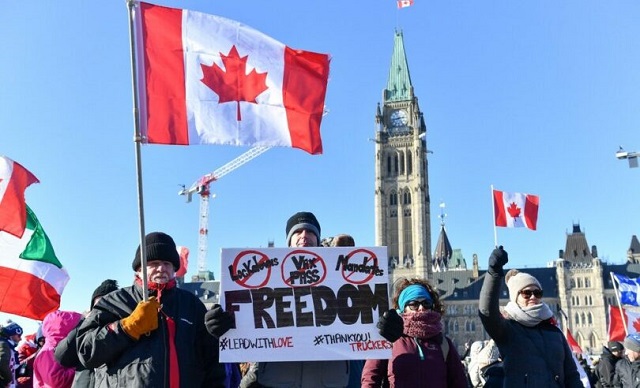
 Freedom Convoy2 days ago
Freedom Convoy2 days agoTrudeau’s use of Emergencies Act has cost taxpayers $73 million thus far
-

 International18 hours ago
International18 hours agoTelegram founder tells Tucker Carlson that US intel agents tried to spy on user messages
-

 Jordan Peterson2 days ago
Jordan Peterson2 days agoJordan Peterson slams CBC for only interviewing pro-LGBT doctors about UK report on child ‘sex changes’
-

 Agriculture2 days ago
Agriculture2 days agoBill C-282, now in the Senate, risks holding back other economic sectors and further burdening consumers
-
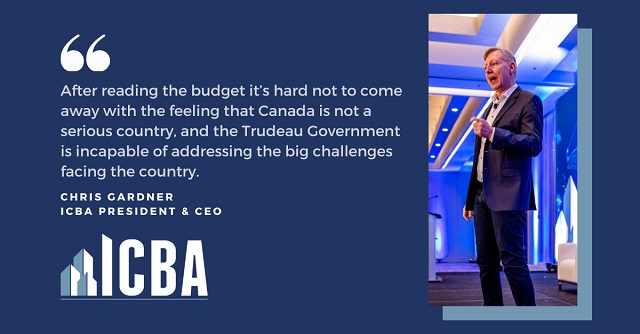
 Business2 days ago
Business2 days agoDoubling Down on Missing the Mark
-
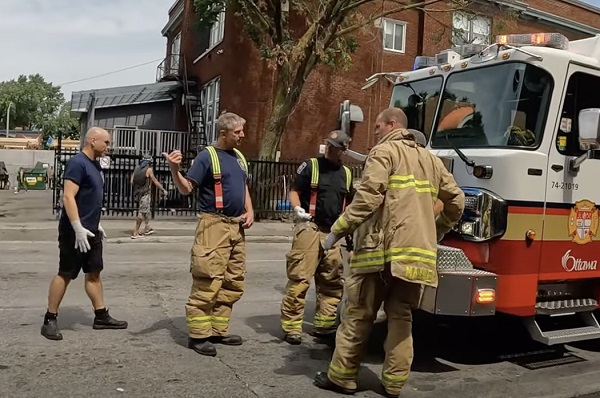
 Addictions2 days ago
Addictions2 days agoLiberal MP blasts Trudeau-backed ‘safe supply’ drug programs, linking them to ‘chaos’ in cities
-
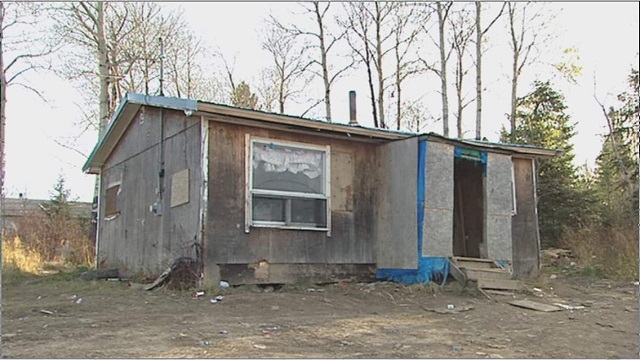
 Frontier Centre for Public Policy2 days ago
Frontier Centre for Public Policy2 days agoThe Smallwood solution





